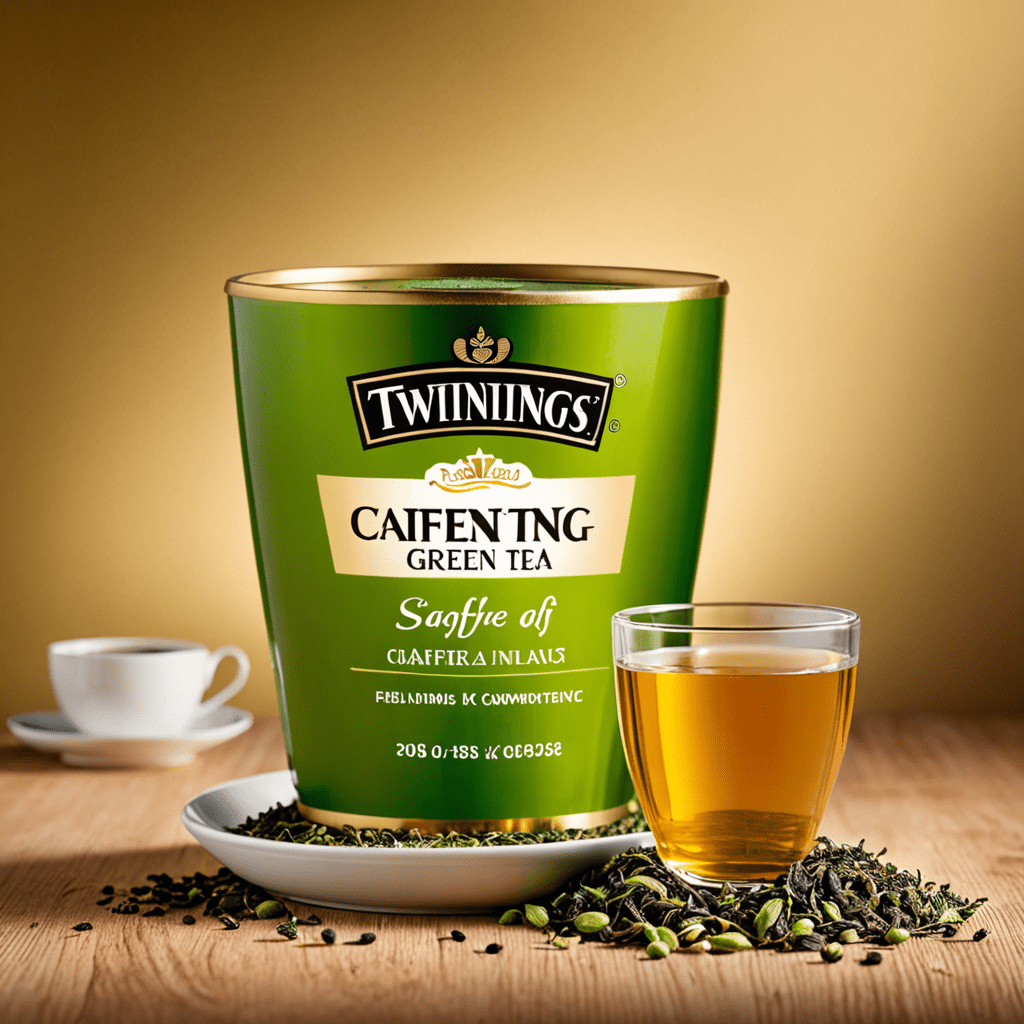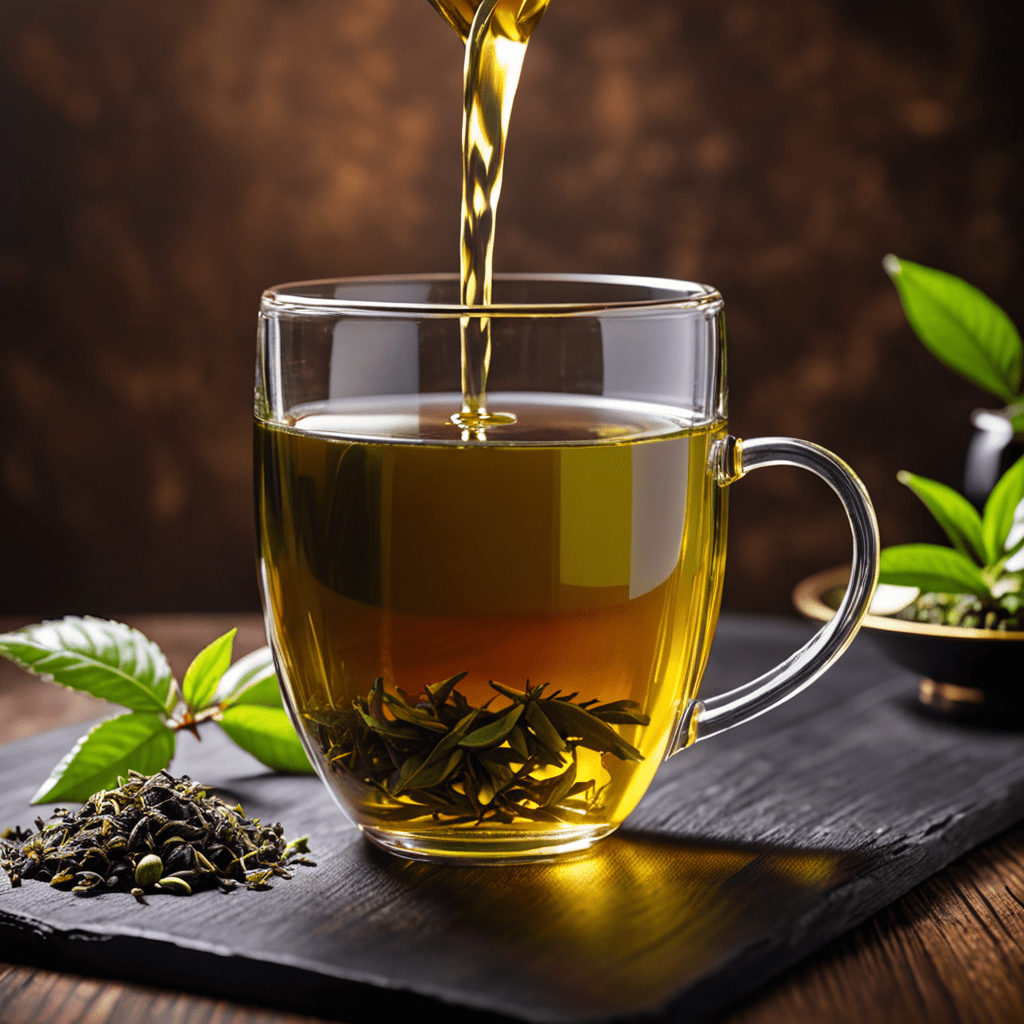
Exploring the Caffeine Content of Twinings Green Tea for an Energizing Sip
As a popular choice among tea drinkers, Twinings Green Tea offers a refreshing and delightful experience. Many individuals turn to green tea to enjoy its unique flavor and potential health benefits. However, some may wonder about the caffeine content in Twinings Green Tea. In this article, we will dive into the topic and explore just how much caffeine you can expect to find in your cup of Twinings Green Tea.
Understanding Caffeine in Tea
Before delving into the specific caffeine content of Twinings Green Tea, it’s important to have a basic understanding of caffeine in tea overall. Caffeine is a natural stimulant found in various plants, including tea leaves. It acts as a central nervous system stimulant, providing a temporary boost in energy and alertness.
The caffeine content in tea can vary widely, depending on factors such as the type of tea, processing methods, and brewing techniques. Generally, black tea tends to have higher caffeine levels compared to green tea, while herbal teas and tisanes are typically caffeine-free.
The Composition of Twinings Green Tea
Now let’s turn our attention to Twinings Green Tea specifically. Twinings is a renowned tea brand that offers a wide range of tea blends, including green tea. Their green tea is crafted from carefully selected tea leaves, often sourced from renowned tea-growing regions.
Twinings Green Tea is known for its delicate flavor and vibrant aroma. It is a non-fermented tea, meaning that the leaves are simply withered and heated to prevent oxidation. This minimal processing helps to retain the natural compounds present in the tea leaves, including caffeine.
Measuring the Caffeine Content
To determine the exact caffeine content in Twinings Green Tea, it is important to consider various factors. These include the specific type of green tea, the origin of the tea leaves, and the brewing methods used.
The amount of caffeine in tea is usually measured in milligrams (mg) per serving. However, it is essential to note that the numbers provided are approximate values, as the caffeine content can vary from batch to batch and even within different tea bags.
Typical Caffeine Levels in Twinings Green Tea
Twinings does not provide specific information on the caffeine content of their individual tea blends, including their green tea. However, through laboratory testing and consumer reports, estimated caffeine levels in green tea can range from 15 to 45 mg per 8-ounce serving.
Compared to black tea, which generally contains around 30 to 60 mg of caffeine per 8-ounce serving, Twinings Green Tea tends to offer a slightly lower caffeine content.
Factors Affecting Caffeine Content
While the estimated caffeine levels in Twinings Green Tea mentioned above can provide a general idea, it is important to remember that several factors can affect the actual caffeine content in your cup of tea. Here are some key factors to consider:
1. Brewing Time and Temperature:
The longer you steep your green tea and the higher the water temperature, the more caffeine is likely to be extracted. If you prefer a stronger cup of tea, you may end up with a slightly higher caffeine content.
2. Tea Bag Size and Quality:
The size and quality of the tea bag can impact the amount of caffeine released during steeping. Twinings Green Tea is known for its quality tea bags, providing an optimal brewing environment.
3. Tea Leaf Quality:
The overall quality of the tea leaves used in Twinings Green Tea can also affect caffeine levels. Higher-quality leaves may contain more caffeine compared to lower-grade leaves.
4. Personal Sensitivity:
Individuals can have different sensitivities to caffeine, so the actual effects may vary from person to person. Some individuals may find that they are more sensitive to caffeine and may experience stronger effects.
Frequently Asked Questions (FAQ)
Q1: Can I drink Twinings Green Tea if I am sensitive to caffeine?
A1: The caffeine content in Twinings Green Tea is generally lower than that of black tea or coffee. However, if you are particularly sensitive to caffeine, you may still experience its effects. Consider opting for decaffeinated green tea or herbal teas if you want to avoid caffeine altogether.
Q2: Does Twinings offer decaffeinated versions of their green tea?
A2: Yes, Twinings provides decaffeinated versions of their green tea. These teas undergo processes that remove most of the caffeine while preserving the flavor and aroma of the tea.
Q3: How can I reduce the caffeine content in my Twinings Green Tea?
A3: To reduce the caffeine content when brewing Twinings Green Tea, consider using cooler water and shorter steeping times. These methods will result in less caffeine being extracted from the tea leaves.
Q4: Are there any health benefits associated with caffeine in green tea?
A4: Caffeine in green tea can provide temporary boosts in energy and mental alertness. Some studies suggest that green tea consumption, including its caffeine content, may also offer potential health benefits such as improved brain function and reduced risk of certain chronic diseases. However, further research is needed to establish conclusive evidence.
Q5: Is it safe to consume Twinings Green Tea regularly?
A5: Twinings Green Tea is generally safe for regular consumption. However, individual tolerance and sensitivity to caffeine may vary. It is always advisable to listen to your body and adjust your consumption accordingly.
Q6: How can I customize the caffeine content in my Twinings Green Tea?
A6: If you prefer a milder cup of Twinings Green Tea, consider opting for a shorter brewing time, lower water temperature, or choosing decaffeinated versions. Mixing Twinings Green Tea with herbal teas can also help reduce the overall caffeine content while creating unique flavor combinations.
In conclusion, while the exact caffeine content in Twinings Green Tea may vary, it generally falls within a moderate range. By understanding the factors that influence caffeine levels, and by adjusting brewing methods to suit personal preferences, individuals can enjoy a delightful cup of Twinings Green Tea with the desired caffeine experience. Remember, the journey of tea appreciation is not just about caffeine content; it’s also about embracing the flavors, scents, and moments of tranquility that tea offers.

